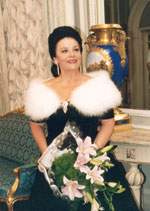 Irina Bogacheva (Russia)
Irina Bogacheva (Russia)
People’s Artist of Soviet Union, leading soloist of the Mariinsky theatre, Professor of Saint-Petersburg Conservatory, chief of Department of Solo Singing.
Irina Bogacheva is a world-famous singer. Has graduated from the Leningrad State Conservatory where studied under prof. A.Levando. Has undergone apprenticeship under professor Barra at La Scala in Milan, Italy during 1968-1970. Having won the Glinka Competition while still a student, she has been invited to work at the Mariinsky Theatre where she has remained a soloist until today. At the Mariinsky she has performed a number of leading roles for mezzo-soprano in the operas of G.Bizet, G.Verdi, M.Mussorgski, N.Rimsky-Korsakov, P.Tchaikovsky, S.Prokofiev and others. Her most outstanding roles are the nametitle in Bizet’s “Carmen”, Amneris in Verdi’s “Aida” and Liubasha in Rimsky-Korsakov’s “The Tsar’s bride”.
A fantastic combination of the most beautiful voice, an impeccable vocal technique and high acting mastery makes all her public appearances unforgettable. Her opera repertory is immense. She has performed all major parts for mezzo-soprano on most important stages of the world, such as the Metropolitan Opera, Opera Bastille, La Scala, Teatro Colon, San-Francisco Opera and many others. The singer tours extensively with solo recitals in Norway, France, China, Spain, Japan, Korea, UK, Germany, Italy etc.
Her remarkable pedagogical output is worth mentioning; she is many years a professor of the Saint-Petersburg State Conservatory. A few talented singers exploring the world’s stages today had studied under her guidance; the now widely recognized Olga Borodina can alone prove of significant contribution of her teacher to the world’s opera culture. Today her former and actual students; Olga Savova, Elena Vitman, Natalia Evstafieva, Yuri Ivshin, Natalia Biriukova, Yulia Simonova, Maria Litke and Olesia Petrova are performing on stages of major opera theatres of Saint-Petersburg – the Mariinsky and the Mussorgsky.
Irina Bogacheva has been granted Government awards, appointed a Honorary Citizen of Saint-Petersburg, granted important insignia “In recognition of merit to Motherland” and “the Vernadsky Star”
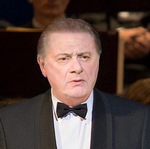 Teimuraz GUGUSHVILI (Georgia)
Teimuraz GUGUSHVILI (Georgia)
people’s artist of Georgia, principal soloist of the Tbilisi Opera and Ballet Theatre
He is called Gold Tenor of Georgia, in his box of awards and titles are State Prize of Georgia and Order of Honour. Teimuraz Gugushvili is an award winner of the Paliashvili Prize and Andzhaparidze Prize, award winner of the Arkhipova Found Prize, one of the most famous opera soloists of modernity. An artist and a pedagogue, he belongs to the pleiad of masters that enriched greatly the national vocal school. Since 1978 till today Teimuraz Gugushvili is a soloist of the Tbilisi State Opera and Ballet Theatre named after Paliashvili.
Teimuraz Gugshvili had graduated from the Tbilisi State Conservatory named after Saradzhishvili and from the post-graduate studies (class under people’s artist of Georgia Andguladze). 1982-1983 he undertook an internship at the famous theatre La Scala in Milan. More than 20 years the artist is engaged in educational work and teaches at the department of solo singing at his alma mater.
During his work at the theatre Teimuraz Gugushvili played almost all parts for tenor of the classical opera repertory, among which are Nemorino (The Elixir of Love by Gaetano Donizetti), Count Almaviva (The Barber of Seville by Gioachino Rossini), Duke of Mantua, Radamés, Don Carlos, Cassio (Rigoletto, Aida, Don Carlos, Otello by Giuseppe Verdi), Cavaradossi, Pinkerton (Tosca, Madam Butterfly by Giacomo Puccini), Turridu (Rustic Chivalry by Pietro Mascagni), Canio (Pagliacci by Ruggero Leoncavallo), Lensky, German (Eugene Onegin, The Queen of Spades by Pyotr Tchaikovsky), parts of the operas by national composers Zakaria Paliashvili, Victor Dolidze, Otar Taktakishvili and Giya Kancheli.
The tour rout of the singer is as wide as his repertoire. Teimuraz Gugushvili has sung in USA, England, Scotland, Ireland, Spain, France, Germany, Italy, Japan, Belgium, Denmark, Holland, Israel, Turkey. He appeared on the opera stages of Moscow (the Bolshoi Theatre), Saint-Petersburg (Mariinsky Theatre), Kazan, Yekaterinburg, Kiev, Baku, Kishinev.
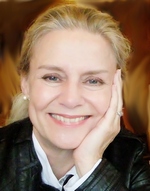 Constanze KÖNEMANN (Germany)
Constanze KÖNEMANN (Germany)
is the Opera Director and Representative of the General Director of the Hamburg State Opera. Her area of competence primarily covers all casting issues as well as the development of the ensemble and the management of the International Opera Studio.
Born into a musical family, with her father being General Manager of several leading opera houses in Germany, she started her musical studies already during her last years in high school. At the age of only 19 she was hired as an assistant stage director, at the theatre in Gelsenkirchen, before joining the opera house in Krefeld, Germany, where she also began working as a stage director in her own right. Following her engagement in Krefeld she was engaged at the Frankfurt Opera, where the care for the repertoire of this big opera house was her main responsibility. During this period she also worked as a stage director for the Karlsruhe State Opera and the Opéra du Rhin, Strasbourg, staging "Fidelio", "Tristan and Isolde" a.m.. In 1991 Constanze Könemann entered a new field in theatrical work when she was appointed Artistic Administrator of the Dortmund Theater. At the same time she continued to work as a stage director, returning to the Frankfurt Opera as a guest and making her debut in the United States with her production of “Il barbiere di Siviglia” for the Indiana University at the Musical Arts Center in Bloomington.
In the 1994/95 season Constanze Könemann became Director of Artistic Production at the Leipzig Opera, working closely with the composer and general manager Udo Zimmermann, and, in 1999, she moved to the opera house in Bonn, where she held the position of Artistic Director for nearly ten years. Prior to her work at the Hamburg State Opera, which she started in 2015, she was co-owner and director of the London based artists agency Haydn Rawstron Ltd.
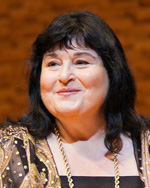 Makvala KASRASHVILI (Russia)
Makvala KASRASHVILI (Russia)
People’s Artist of the USSR (1986). People’s Artist of Georgia (1980)
In 1983, she won the Zakhar Paliashvili Georgian SSR State Prize. In 1998, she received the State Prize of Russia for her performance of the title role in Tosca in the Bolshoi Theatre production and for the concert programs. In 2001, she became a holder of the Order For Services to the Fatherland, IVth. In 2006, she was awarded the Order of Friendship.
Born in Kutaisi (Georgia). Graduated from the Tbilisi Conservatory (Vera Davydova’s class, 1966). She has been at the Bolshoi Theatre since 1966. The singer’s repertoire includes all leading soprano parts. Makvala Kasrashvili’s international career took off with her triumphant debut, in 1979, at the Metropolitan Opera as Tatiana in Eugene Onegin. As a guest star, Makvala Kasrashvili has sung at the world’s leading opera houses. So, at the Royal Opera House Covent Garden in London she performed Mozart’s roles such as Donna Anna (Don Giovanni) and Vitellia (La clemenza di Tito). She also performed Donna Anna at Hamburgische Staatsoper and the Prague State Opera. In 1984, she made her debut at Bayerische Staatsoper as Aida; later on this stage she performed Verdi’s Desdemona (Otello) and Amelia (Un ballo in maschera). She also performed Amelia at the Metropolitan Opera. She appeared as Elisabeth in Don Carlo at the Savonlinna Opera Festival (Finland), Aida at the Weiner Staatsoper, Teatro Arena di Verona and Lyric Opera of Chicago, Amneris in Verdi’s Aida at the Opera New Jersey.
Collaborated with famous conductors such as Evgeny Svetlanov, Gennady Rozhdestvensky, Yuri Temirkanov, Valery Gerigev, Vladimir Spivakov, Colin Davis, Nello Santi, Charles Dutoit and Neeme Järvi, as well as with prominent singers including Elena Obraztsova, Vladimir Atlantov, Zurab Sotkilava, Yuri Mazurok, Evgeny Nesterenko, Ruggero Raimondi, Nicolai Ghiaurov, Nicolai Gedda, Kiri Te Kanawa and others.
A member of jury at the international vocal competitions. Professor at the Tchaikovsky Moscow State Conservatory. Assistant to Music Director - Chief Conductor at the Bolshoi Theatre.
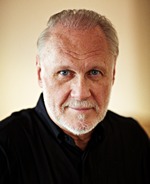 Sergey LEIFERKUS (Russia)
Sergey LEIFERKUS (Russia)
is an outstanding singer who had triumphed on all opera stages of the world. He graduated from the Leningrad State Conservatory and subsequently worked for a long period in the city’s opera theatres. The world-wide fame came in the beginning of 1980s, when he started performing at the world’s leading opera houses such as Covent Garden in London, the Viennese Staatsoper, Opera de Bastille, La Scala, the MET and Teatro Colon in Buenos Aires. Sergey Leiferkus became a permanent and warmly-welcomed guest at the major opera festivals in Edinburgh, Bregenz, Glyndebourne, Tangle wood, Ravine and Salzburg. Nowadays he focuses not only on stage productions, but also gives numerous recitals in Moscow, Saint-Petersburg, New York, London, Amsterdam, Vienna, Milan and others. He has collaborated with Boston, New York, Montreal, Berlin and London symphony orchestras and conductors Claudio Abbado, Zubin Metha, Seigi Ozawa, Yuri Temirkanov, Valeri Gergiev, Neeme Jarvi, Mstislav Rostropovich, Curt Masur and many others.
The richness of vocal timbre and an outstanding acting talent of Sergey Leiferkus have enabled him to perform in most diverse opera stagings and to build unforgettable roles. His repertory includes over 40 roles, including the name titles of Evgeny Onegin and Mazeppa by P.Tchaikovsky, Prince Igor by A.Borodin, Nabucco, Macbeth and Simon Boccanegra by G.Verdi and Don Giovanni by W.A.Mozart , Telramund ( “Lohengrin” ) and Clingsor (“Parcifal” by R.Wagner) , Amonasro (“Aida” by G.Verdi”), Don Carlos (“La forza del destino” by G.Verdi), Yago (“Othello” by G.Verdi), Rupert (“The fiery angel” by S.Prokofiev), Prince Andei (“War and peace” by S.Prokofiev) and many others. Sergey Leiferkus pays great respect to stylistic and linguistic nuances of works being performed and whereas is able to embody on stage such diverse characters as Scarpia (“Tosca” by G.Puccini), Gerard (“Andre Chenie” by U.Giordano), Escamilio (“Carmen” by G.Bizet), Zurga (“Les chercheurs des perles” by G.Bizet). The discography of Sergey Leiferkus includes well over 40 CDs and DVDs. His recordings of Russian music have attained many international prizes; some albums have been nominated to Grammy awards. In his catalogue of video recordings one can find operas staged at the Mariinsky theatre (“Evgeni Onegin” and “The fiery angel”) and at the Covent Garden (“Prince Igor” and “Othello”), three versions of “The Pique Dame” (Mariinsky theatre, Staatsoper Wien, Glyndebourne festival) and “Nabucco” (Bregenz festival). Recently Sergey Leiferkus has taken part in the television productions of operas “Carmen” and “Samson and Dalila” at the MET.
Besides such busy performing schedule Sergey Leiferkus gives master classes and teaches in Berlin, Toronto, Moscow, Boston and Oldborough.
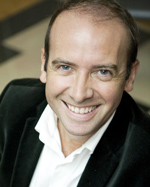 Emmanuel HONDRÉ
Emmanuel HONDRÉ
Emmanuel HONDRÉ completed his studies as a flautist the Conservatoire National de Musique et de Danse in Paris, winning three first prizes in history of music (1992), aesthetics (1994) and musicology (2000). The thesis for his 2001 doctorate from the University of Tours was on the subject of the establishment of the branches of the Conservatoire de musique de Paris from the Restoration to the July Monarchy. His research extended to the history of teaching and cultural policy in France in the 19th century, focusing on Paris, Lille, Metz, Toulouse and Marseille.
In 1995 he led a publication entitled Le Conservatoire de Paris - Regards sur une institution et son histoire. Between 1999 and 2002 he participated in the European Science Foundation’s programme of studies dedicated to European musical institutions. He has also co-ordinated the publication of a book dedicated to La Marseillaise (2002) and published a biography of François Devienne (2004).
After teaching history of music at the Conservatoire du Centre de Paris, the École Nationale Supérieure des Techniques Avancées, the Centre d’Art Polyphonique de Paris and at the École Polytechnique, he took up the post of Music Editor at the Cité de la Musique in 1997, where he was later appointed Head of cultural services at the Musée de la Musique (2002), following which, Director of Production of Cité de la Musique and Salle Pleyel (2005) and from January 2015 Director of Concert Department of the Philharmonie de Paris. He also occasionally lectures at the University of Versailles/Saint-Quentin-en-Yvelines on the predoctoral module DESS in communications of public, private and political organizations (cultural module).
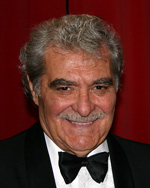 Tito CAPOBIANCO (USA)
Tito CAPOBIANCO (USA)
Tito Capobianco, Stage Director, is acclaimed for his ingenious and versatile treatment of repertory classics, from Baroque to Romantic, verismo, contemporary and his innovative updated settings of the operas starting in 1957 with a modernistic version of Puccini’s Tosca.
In addition to his unparalleled and distinctive success with his 24 opera productions at the Lincoln Center in New York City, Capobianco has staged over 250 productions in Europe, Australia, and the American continent for major opera houses, such as Paris, Berlin, Hamburg, Amsterdam, Barcelona, San Francisco, Buenos Aires, Mexico City, Sidney, Spoleto and the Las Palmas Festival, Spain.
Capobianco’s staging of American and world premieres such as Ginastera’s Don Rodrigo and Bomarzo, Menotti’s La Loca, Giannini’s Servant of two Masters, Dvorak’s Rusalka and Chabrier’s Gwendoline, plus numerous new productions, have been hailed as landmarks in opera history. These premieres have had a strong influence in the development of opera in the United States, beginning with the inauguration of the Lincoln and Kennedy Centers.
His productions of Boito’s Mephistopheles, Massanet’s Manon, Handel’s Julius Caesar and Donizetti’s Lucia di Lammermoor continue to form part of the repertoire of these centers after more than 20 years.
Much of Capobianco’s success as director is due to his first-hand experience with every phase of theatrical art; he has directed productions of opera, theater, ballet and television, and was a stage and film actor in Argentina.
In 1961, after a trail of brilliant accomplishments, that include the South American Premiers of Stravinsky’s The Rake Progress, Prokofiev’s The Love for Three Oranges, Menotti’s The Saint of Bleecker Street, Puccini’s Modern Tosca and a new production of Rossini’s La Cenerentola, he left his position as Director-Designer-Technical Director of the famous Teatro Colon of Buenos Aires, to come to the United States.
During the 1960’s, his collaboration with the soprano Beverly Sills became legendary. This led to the first televised opera production from the Lincoln Center in New York City with the production of R. Korsakov’s Le Coq D’Or as well as the west coast production of Frantz Lehar’s The Merry Widow in San Diego in 1977.
Some of the world’s most talented artists have participated in his productions, names including Claudio Abbado, Leonard Bernstein, James Levine, Loren Maazel, Luciano Pavarotti, Placido Domingo, Richard Tucker, Nicolai Gedda, Birgit Nilsson, Joan Sutherland, Beverly Sills, Monserrat Caballe, Sherrill Milnes, Tito Gobbi, Cornel McNeil, Shirley Verret, Marilyn Horne, Regina Resnik, Norman Treigle, Justino Diaz, and Jose Van Dam, to mention just a few.
Throughout his career, Capobianco has demonstrated his commitment to the educational needs of young artists. In 1968 he founded and became General Director of the Opera Center at the Juilliard School of Music in New York City. He created the Opera Department at the College of Performing Arts in Philadelphia in 1972, the San Diego Opera Center in 1977, and the Pittsburgh Opera Center in 1986.
In the late 1970s, he established the world’s first Verdi Festival in San Diego, California.
In recognition of his creative work in Italian and French opera and culture, Capobianco has been awarded by the Italian government, Cavaliere della Repubblica and Officer dans l’Ordre des Arts et Lettres by the government of France.
He has also been distinguished with numerous honorary degrees for his extensive community involvement.
Today, Capobianco concentrates exclusively on teaching young artists in the United States and Europe.
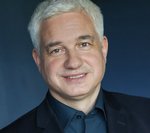 Hans Joahim FREY (Germany)
Hans Joahim FREY (Germany)
stage director
One of the few European managers in the field of culture, who, except as Director of an international opera theatre, acted as General Director of a big theatre with mixed repertoire and from time to time directed a big concert hall and international festival. He graduated the High Music School in Hamburg with three majors at the same time - opera singer, director of music theatre and cultural manager. From 1997 to 2007 he was Opera Director of the famous Dresdner Semperoper, and from 2007 to 2011 he was General Director at the Bremen Theatre. In 2006, he found the yearly ball of Dresdner Semperoper, which turned to be one of the most successful events in the field of classical music in Germany and is being telecasted for more than 4 hours in Germany and in whole Europe. In 1996, he found the International Singing Competition in Dresden, which has been recently one of the most famous of its kind in the world. The competition expanded its scope and in 2011 it was held at Bolshoi Theatre Moscow, in 2012 at Bolshoi Theatre Minsk, and in 2013 - at Brucknerhaus Linz, Austria. From 2008 to 2010 Hans-Joachim Frey set "Aida", "Der fliegende Holländer" and "Turandot" before more than 35 thousand spectators of the directed by him Lake Stage in Bremen. He set his productions at Mikhaylovsky Theatre and at Mariinsky Theatre in St. Petersburg, as well as at Boris Pokrovsky Chamber Opera in Moscow. In 2012, he set "Der fliegende Holländer" by Richard Wagner for the first time on the other side of Ural by the Lake Baikal and at the theatres in Ulan-Ude and Irkutsk, and in 2013 - in Minsk. He also produced the opening gala in October 2013 the new opera house of Primorsky region in Vladivostok. In October 2014 has its new production of "Cosi fan tutte" by WA Mozart in Ulan-Ude Premiere and in August 2015, the new production of "Salome" by Richard Strauss at the National Theatre in Beijing China. Since April 1, 2014, he has been a permanent consultant of the Directors-General of the Bolshoi Theatre in Moscow.
He is in South Korea since 2011 visiting professor at Seoul Arts College.
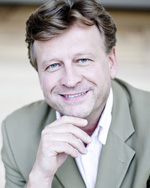 Tamás BÁTOR (Hungary)
Tamás BÁTOR (Hungary)
Basso
He was born in Budapest, and graduated from the Franz Liszt Academy of Music, in his native town. He completed his music studies in the Opera Studio of the Scala in Milan as the disciple of Giulietta Simionato and M. Luciano Silvestri.
In 1986 he made his debut as an opera singer in the Hungarian State Opera and this appearance was followed by guest appearances at the Scala in Milan, Piccolo - Teatro Studio in Milan, at the Ludwigsburg Festival, then in Barcelona, Rome, Lausanne, Bern, Gera, Rostock, Modena, Prague, Corsica, Rimini and in Nurnberg, at the Flanders Festival in Antwerp and in Brussels, at the Gewandhaus in Leipzig, Boden See Festival, Madrid, Copenhagen at the Tivoli Festival Oroves, Augsburg, Dublin, Budapest, in the USA (Portland Opera and Baltimore Opera), at the Budapest Spring Festival and Budapest Autumn Festival, EXPO 2000 in Hannover, at the Salzburger Festspiele, at the Montpelier Festival, International Summer Festival in Thale (Arena), in Engadin/St.Moritz Opera Festival, at International Haydn days, by Hungarian National Philharmonic Orchestra and Hungarian Radio Orchestra, in Japan (Tokyo, Osaka, and Hiroshima), in Stuttgart Opera, in the „New Opera“ in Tel Aviv, in Monte Carlo, in Marseilles, in Paris, in Thessaloniki, in Teatro Comunale di Bologna, in Cluj-Napoca (Klausenburg).
He was the member of State Theatre in Luzern and in St. Gallen, in the Deutsche Nationaltheater in Weimar and in the Hungarian State Opera.
He has sung the main deep bass parts and roles in operas by classical Russian and West-European composers as Titurel (Parsifal); The Ark of Noah (Benjamin Britten); Il principe Felice (Franco Mannino); Raimondo (Lucia di Lammermoor); Basilio (Il Barbier di Siviglia); Sarastro (Die Zauberflöte); Sparafucile (Rigoletto); Rodolfo (La Sonnambula); Bartolo (Le nozze di Figaro); Leporello and Il comendatore. (Don Giovanni); Seneca (L’incoronazione di Poppea); Arnold (The English Cat); Ferrando (Il Trovatore);Caronte (Orfeo); Osmin (Die Entführung aus dem Serail); Oroveso (Norma); Duke Bluebeard (Bartók); Guardian (Le forza del destino); IV. Béla (Szokolay: Margit); Gurnemanz (Parsifal); Ramphis (Aida); Baldassarre (La Favorita); Rocco (Fidelio); Pimen (Boris Godunow); King Marke (Tristan and Isolde); Eremit (Der Freischütz); Mephisto (Gounod: Faust); Landgraf (Tannhäuser); Brandel (Berlioz: Fausts Verdammnis).
He has sung different oratories as Graner Messe and Christ (Franz Liszt), Requiem (Verdi), Requiem, Stabat mater (Dvorak), Messe (Vivaldi), Missa Solemmis (Beethoven), Te Deum (Anton Bruckner) and symphonic version of Mephistopheles (Boito).
He worked with such outstanding masters as Daniele Gatti, Marcello Viotti, Ádám Fischer, Kobayasi Ken-Ichiro, Jurij Szimonov, Lamberto Gardelli, Giuseppe Patane, Carl Melles, Zoltán Peskó, Carlo Franci, Pier Giorgio Morandi, Lothár Zagrosek, Fabio Luisi, Ondrej Lenárd, Georg Alexander Albrecht, Joseph Rescigno, Imre Palló, Michail Jurowski, Tamás Vásáry, Zoltán Kocsis, János Kovács, Fabio Luisi.
Many CD and radio recordings proof his talent: Magnificat (Caldara Sammartini and Albinoni), André Chenier and La Gioconda at the „CBS”(Conducted by: G. Patane), Guntram (Richard Strauss) and Macbeth (Verdi) (Conducted by: L. Gardelli) etc...
Between 2003-2011, he is the Management Director of the “Bartók +…” International Opera Festival in Miskolc.
Since 2007-, he is the Artistic Advisor in the Hungarian State Opera in Budapest.
Since 2011-, he is the Program Director of Co-Production at the Palace of Arts (Mupa), Budapest.
In recent years, he has been much more active in the concert life in European cities and in Hungary as well.

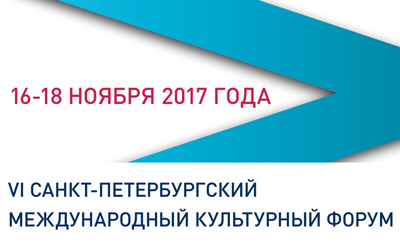


 Irina Bogacheva (Russia)
Irina Bogacheva (Russia) Teimuraz GUGUSHVILI (Georgia)
Teimuraz GUGUSHVILI (Georgia)
 Constanze KÖNEMANN (Germany)
Constanze KÖNEMANN (Germany) Makvala KASRASHVILI (Russia)
Makvala KASRASHVILI (Russia) Sergey LEIFERKUS (Russia)
Sergey LEIFERKUS (Russia) Emmanuel HONDRÉ
Emmanuel HONDRÉ  Tito CAPOBIANCO (USA)
Tito CAPOBIANCO (USA)  Hans Joahim FREY (Germany)
Hans Joahim FREY (Germany) Tamás BÁTOR (Hungary)
Tamás BÁTOR (Hungary)